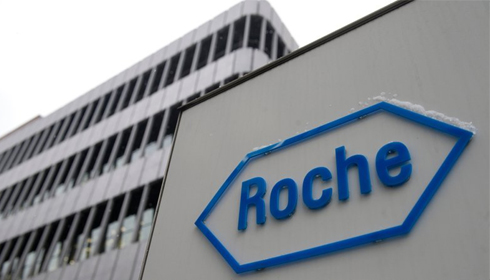
Roche Introduces Cobas Respiratory Flex Test, Pioneering TAGS Technology for Enhanced Respiratory Diagnostics
Swiss pharmaceutical behemoth Roche, has announced that it has launched the ground-breaking Cobas respiratory flex test, the first diagnostic instrument to apply its unique TAGS (Temperature-Activated Generation of Signal) technology. Currently available in nations embracing the CE-mark, the test detects up to 12 common respiratory viruses concurrently, including SARS-CoV-2, influenza A and B, and respiratory syncytial virus (RSV).
With up to 15 pathogens detected in a single patient sample by the patented TAGS technology, this represents a major improvement over conventional PCR tests, which often aim only at four pathogens at once. The Cobas respiratory flex test, designed for high-throughput diagnostic systems such as the Cobas 5800, 6800, and 8800, promises faster, more accurate diagnosis, optimizing antibiotic use and accelerating patient care. "As respiratory outbreaks, combined with growing antibiotic resistance, continue, getting an accurate and timely diagnosis is critical to providing the best care for patients and curbing transmission," said Matt Sause, CEO of Roche Diagnostics.
The TAGS technique offers one of its main benefits in syndromic testing. When several diseases cause similar symptoms, the necessity for multiple tests usually delays accurate identification. The Cobas respiratory flex test helps doctors identify particular bacteria depending on season and patient history, therefore lowering the need for follow-up testing. "Using TAGS technology, the Cobas Respiratory Flex Test can help clinicians identify specific respiratory viruses sooner, helping to speed up diagnosis and get the right care to patients," Sause said.
By cutting the requirement for several test kits, the Cobas respiratory flex test streamlines laboratory processes. Its capacity to produce complete findings in one PCR test not only saves time but also maximises resource use, thereby lessening demand on clinical laboratories. Seasonal outbreaks, which strain laboratory capacity, make this efficiency especially crucial.
Looking forward, Roche intends to extend the application of TAGS technology outside of respiratory viruses, therefore transforming the testing for different infectious diseases. Roche claims that local registrations have started in several nations, with FDA 510(k) clearance expected in the United States by the fourth quarter of 2024.
Roche's new Cobas respiratory flex test represents a significant advancement in multiplex diagnostic technologies, extending the company's leadership in respiratory diagnostics. This announcement complements the FDA-approved Cobas liat test and the rebranded Cobas eplex system, thereby strengthening Roche's entire range meant to serve both large central labs and smaller, near-patient environments.